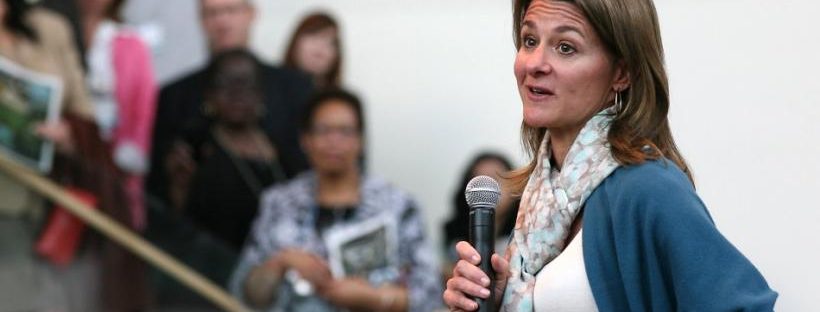[In 2011], the people of the United States were ranked as the most generous in the world in terms of giving time and money to nonprofits, up from fifth place in 2010, according to The L.A. Times. [Approximately] 65% of Americans said they donated money to charity, 43% volunteered their time, and 73% helped a stranger. As far as giving money, Thailand is the most generous, with 85% of their population donating money. [I]n the United Kingdom, 79% gave money, but the British and most of the rest of the world are about half as likely to do volunteer work as Americans, so that is how America regained its No. 1 ranking in 2011. The top-ranked United States was followed by Ireland, Australia, New Zealand and the United Kingdom.
The Center of Philanthropy at Indiana University reported that Americans overall contributed 2% of disposable personal income to philanthropic causes, which is the percent[age] that has remained consistent over the decades. […] This tells us that, despite personal and economic hardships, Americans remain steadfastly committed to each other and their communities. Philanthropy is at the heart of who we are as a society. The Center breaks down our giving as:
| Religious Donations | 35% |
| Education | 14% |
| Foundations | 11% |
| Human Services (Emergencies) | 9% |
| Public-society Benefits | 8% |
| Arts, Culture & Humanities | 5% |
| International Affairs | 5% |
| Environment/Animals | 2% |
We have always believed that our top 1% is the most generous part of our population to nonprofit organizations. According to Philanthropy.com, the top 50 donors in 2011 contributed $10.4 billion, of which $6 billion was from Margaret Cargill, who died in 2006 and her assets [were] formed [into] a foundation in 2011. [W]ithout this, the top 50 total was $4.4 billion. In 2007, the top 50 gave $7.3 billion, and, in 2008, the top 50 gave $15.5 billion. Twenty-nine people on the top 50 list in 2011 gave $50 million or more, [b]ut wealthy people still are not feeling as generous as before the recession. […] The median gift from these donors is $61 million, compared to $74.7 million in 2007.
This top 50 group gives differently than the rest of the United States. [Roughly] 36% [of their donations] went to higher education, 35% to foundations, and 15% to hospitals, medical centers and medical research. No one in this top 50 gave […] $5 million or more to a social-services group. Many philanthropists don’t see human-service organizations as the best way to alleviate America’s problems. Quoting Eli Broad, “[H]e has some sympathy for the ‘Occupy Wall Street’ protestors, but their message of inequality supports his diagnosis of what ails America. [A] poor education system and education will help solve many of our problems.” Interesting[ly], within this top 50 group, only two people who made the biggest gifts of the year are among the 69 who signed the Warren Buffet and Bill and Melinda Gates “Giving Pledge,” which promises to commit at least half of their wealth to charities.
Forbes reported that the 200 largest U.S. charities are only 0.002 of 1% of the country’s 1.5 million tax-exempt organizations, [y]et these top 200 received $41 billion in gifts, which is one-seventh of all charitable contributions. The largest charity is the United Way, with No. 2 being The Salvation Army and No. 3 Feeding America. In June 2011, 275,000 nonprofit organizations lost their tax-exempt status for failure to file legally required documents for three consecutive years. In fact, according to the IRS Tax-exempt Organization’s Table 25, there are [fewer] tax-exempt organizations in 2011 than in every year since 2003. With this turmoil in nonprofit organizations going in and out of business, it is no wonder that our largest donors tend to migrate to the nonprofit organizations that have been around awhile and have a track record.
The rest of us 99% don’t have the luxury of giving millions of dollars to our favorite charity, [b]ut we can give a little, even if it is the national average of 2%, to support causes we believe will help change the world. […] Giving is as good for your own soul as it is for the people you help. If you don’t have the cash, do what 43% of Americans do: volunteer to help a nonprofit that helps others. This is an honorable way to be part of giving back so those in need don’t give up. Giving your time or giving your hard-earned dollars has a rippling effect. A single act of kindness can change lives—and statistics.
Original article here:
https://www.huffingtonpost.com/marc-joseph/donating-non-profits_b_1570890.html
